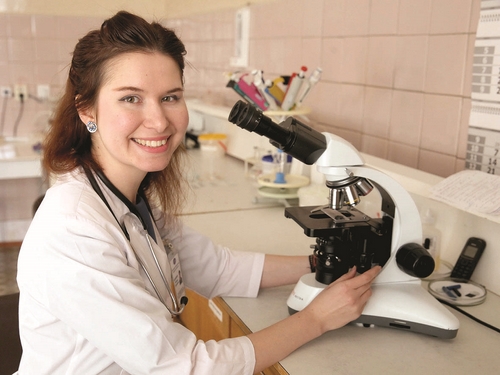
The country has about 546,000 research assistants. Almost 56 percent of them are men. Only about 70 percent of them have a higher education, while others have a secondary vocational education or general secondary education. Junior scientific personnel take on posts as laboratory assistants and the like. As a rule, they are students or former pupils who did not manage to enter university immediately after high school. Clearly, these are not the people who ‘make’ science. The main characters here are doctors and especially candidates of science. The first represent the brains of scientific development, while the second are the ‘workhorses’. As a whole in the country, doctors comprise just over 9 percent of all researchers while the number of candidates is over a quarter of all scientists. The average age of all researchers is 47, that of candidates 51 and doctors 63 years.

More than half of all researchers work in the technical fields of science, and also in natural-scientific areas (29 percent). Humanitarian and agricultural fields of knowledge are the most unpopular today, around 4 percent of scientists work in these fields.
In a special category are the young scientists. The Russian Academy of Sciences uses this term to refer to experts under 39 years old. It is an essential part of the Russian scientific potential and makes up almost 36 percent of all researchers. There are still few doctors among them- 2,6 percent of all doctors of sciences, while the candidates make up almost 30 percent. In the 90’s the number of young scientists was decreasing as they went abroad, however in recent years, the reverse has been observed. The state has actively sought to increase the prestige of scientific work, to encou-rage the return of `brains` to the country. In particular, this includes privileged mortgage lending rates and the free allocation of land for the construction of housing. In Novosibirsk Academgorodok, for example, a whole settlement for young scientists is under construction. Serious changes have been made to the financial position of scientists in the last 10 years. Today their average salary is 43,907 Roubles that is one third more than the average salary in the country as a whole. In 19 regions the salary exceeds the average Russian`s.

In Belarus, 27,000 people are employed in scientific research and development, while 17,000 (40 percent) are women who are engaged directly in research work, others are technicians and support personnel.
Every fifth researcher has a scientific degree, while every fourth is a young scientist. According to estimates by the National Statistical Committee of the Republic of Belarus (BelStat), in 2015 the nominal salary of researchers and deve-lopers was Br8,818,000 (according to the present exchange rate this is hardly more than 31,000 Russian Roubles) that is in general higher than the average salary in the country of Br6,719,000. However, in the scientific sphere large differences in incomes exist depending on experience, talent and sphere of employment.

The most profitable field is IT, where it is possible to earn several dozens of millions of Belarusian Roubles, while academic organizations offer more modest sums. In the general-republican bank of vacancies there are offers for junior research assistants earning Br2.5 to Br3.5 million, while principal research assistants with doctor`s degrees and with the candidate`s degree are offered salaries from Br3.3 to Br5 million. At the same time there are opportunities for additional multiplying coefficients, as well as surcharges for work experience, its complexity and scientific degree, there are also bonuses. Some extra or alternative pay is earned under contracts, including with foreign organizations. Talented young scientists and post-graduate students of Belarus may get presidential grants, which are given to them on a competitive basis for one year and can be comparable to a salary. For example, this year 82 post-graduate students will receive them.

Two years ago on the initiative of the academician of the Russian Academy of Sciences, Zhores Alferov, the award for young Belarusian scientists was instituted in the NAS of Belarus, equivalent to $2,500. Last year it was given to the laboratory head of the Institute of General and Inorganic Chemistry, Candidate of Chemical Sciences, Andrey Ivanets, for unique materials for the purification of water.
The housing issue is being solved, though not quickly. For example, one year ago 186 families, basically young, received apartments in a quarter of rented houses ‘Magistr’.
By Tatiana Smoliakova, Yulia Vasilishina











